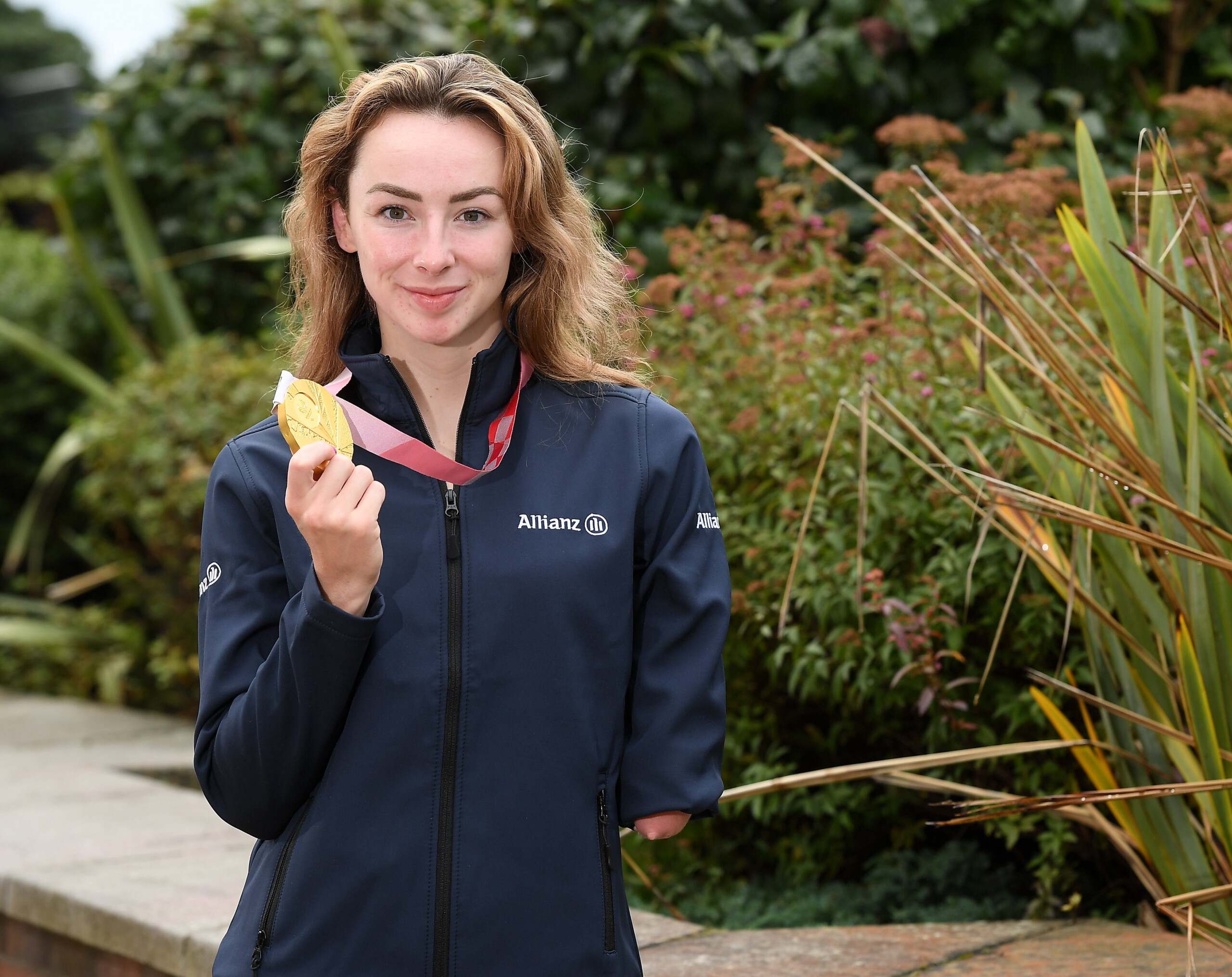Ellen Keane, the Paralympic gold medalist in the SB8 100m breaststroke in Tokyo, returned home to a hero’s welcome early last week.
Thousands of people lined the streets of Clontarf to applaud and cheer Keane as she made her way through the north Dublin seaside town in a Gardaí-led motorcade.
Keane, who won her medal without any fans present, said the moment was special for her.
“It really was amazing.
“I won the medal in an empty stadium, so it was so lovely to be driven around Clontarf with everybody cheering.
“I did get a bit emotional; tears were running down my face at one point,” she said.
“I was just so happy to see everyone.”
Keane said that while in Tokyo, she was cut off from a lot of the support that was receiving back home.
“I saw a few things online,” she said.
“But when they raised the Agitos (the Paralympic flag) in the park, it was very special – because it was being raised for me.
“Not many people know the Paralympics flag is different from the Olympics flag, so it was great to see it getting more attention.”
Tokyo 2020 was Keane’s fourth Paralympic games, after first competing in Beijing in 2008.
She says that it was first time she felt that Paralympic athletes were given the same platform as Olympic athletes.
“In Beijing, there was hardly any coverage of the Paralympics.
There was a bit more in London with the Channel 4 show and then in Rio, but it was only in Tokyo when I truly felt we were being treated as equals with the Olympians,” she says.
“There were even water bottles with the Agitos on them alongside the Olympic rings, which I had never seen before.
“I hope the support we had through the games will continue.”
Keane says that she has a great support system around her, including her coach David Malone, who won a gold medal in the 100m backstroke in Sydney 2000.
“When I won the medal, I asked Dave to put it around my neck because nobody had done it yet.
“I said to him, this is yours as well,” she says.
“He’s been with me for so many years so it was a really lovely moment.
“I have had problems getting access to a pool sometimes [for training], and Dave would always be there fighting my corner.
“It shouldn’t be a fight, we should have equal support, but he knows what it’s like and is always there for me.”
Keane also credited her parents with helping her stay to dedicated to swimming when she was younger.
“My parents were always there to make sure I was doing all of the right things and bringing me to training.
“They’re always at my races cheering for me,” she says.
“I know a lot of athletes get embarrassed by their parents, but that’s just them being them.
“I don’t really like reaching out to the outside world when I’m at a tournament so they’re used to me not texting or ringing them everyday.
“However, I know it was tough for them not being able to see me race,” she says.
“But they’ve been celebrating ever since.”
Keane says the win “hasn’t really sank in too much.
“But I knew what I was capable of, and I did it.
“I hope I can use this medal now to inspire young para-athletes to keep going.
“I think I’m a good example of what can happen if you don’t give up.”
